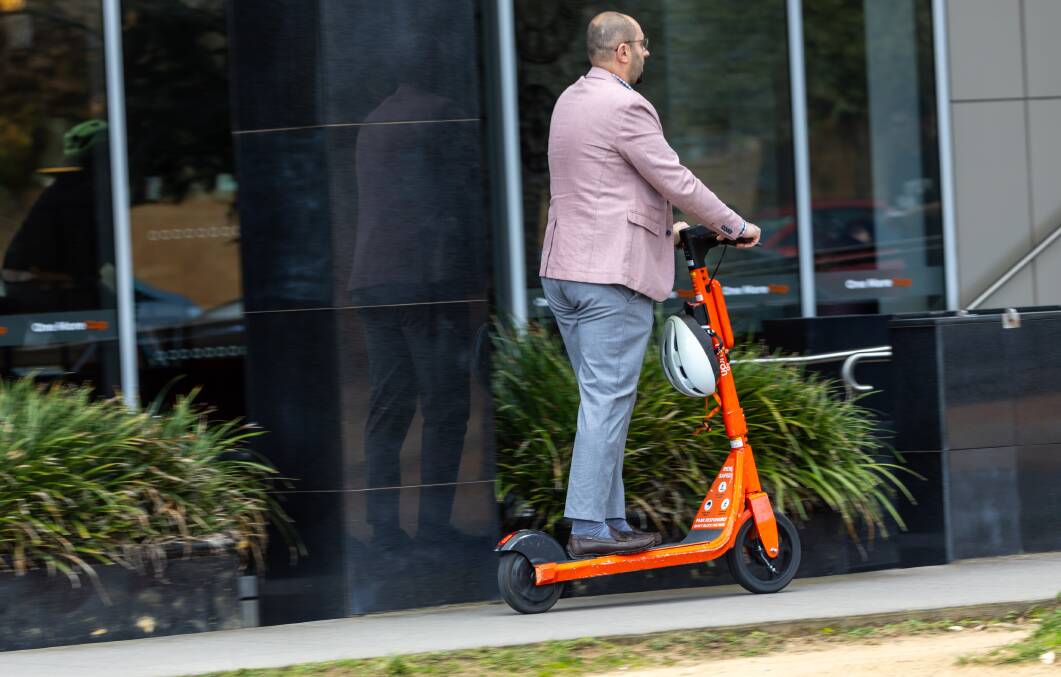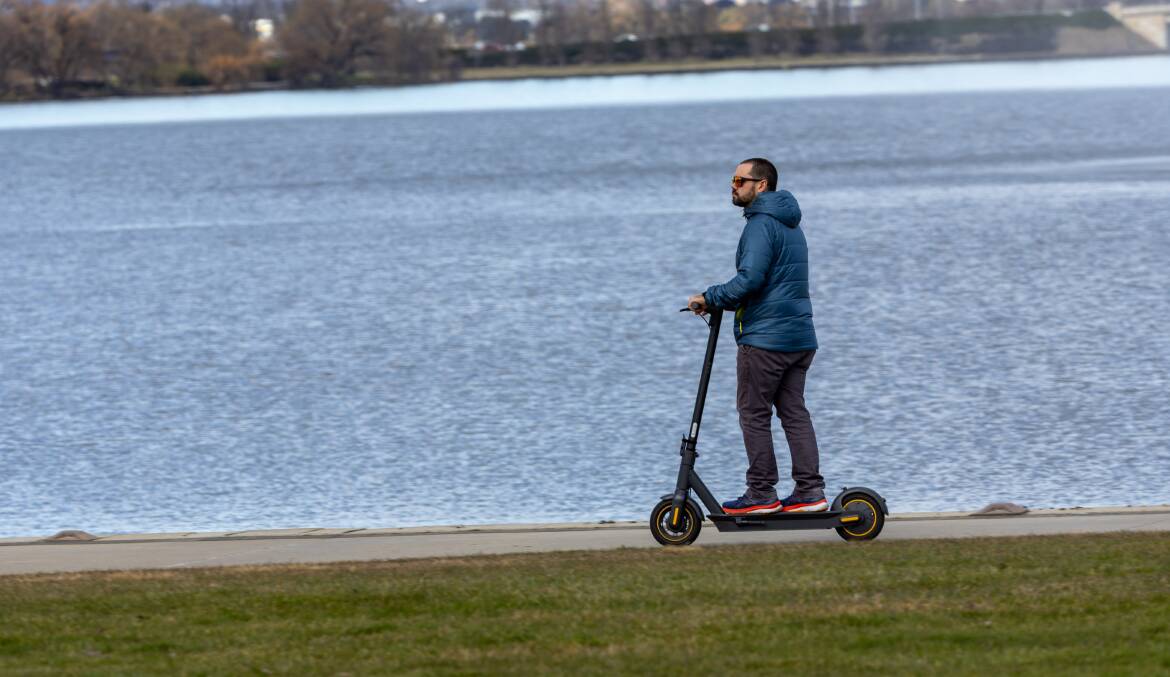
Hundreds more Canberrans are seriously injuring themselves on e-scooters than previously thought, a new study that for the first time reveals the true number of injuries being treated in hospital shows.
The clinical study of Canberra Hospital admissions for e-scooter injuries presented at the annual scientific meeting of the ACT branch of the Australia Orthopaedic Association found there were 623 hospital presentations from the mobility devices over 15 months, in which some 17 per cent of riders required surgical procedures.
The largest proportion were broken wrists (43) and clavicle fractures (12), while 13 of the surgeries were classed as major procedures requiring hours of reconstruction work and costing tens of thousands of dollars.
The study by Dr Igor Policinski, from Brindabella Orthopaedics, also found "polytrauma" injuries, including long bone fractures. These included broken femurs, humeri and tibias, some of which needed surgery at the same time. Most injured were young men, but there was also a surprising number of injured children under 12.
Dr Policinski's study provides a far more accurate and detailed assessment of e-scooter injuries than that offered by Canberra Health Services, which could only provide patient numbers treated by its trauma service.

CHS said there were just 51 e-scooter injuries requiring hospitalisation over a 10-month period last year.
As the ACT government quietly trousers around $675,000 a year from commercial e-scooter providers, Dr Policinski has urged more community safety awareness and a levy placed on their use to cover the cost of injuries to riders.
He supported the idea of providers being required to pay a third party-type insurance levy to cover the cost of injuries, which he said in the most serious cases required treatment costing tens of thousands of dollars, plus months of recovery time.
"Given the very large number of trips recorded by these e-scooters, the cost wouldn't need to be very much per trip," he said.
"But it would assist in cost recovery for the Canberra Hospital and its Emergency Department."
The injury concerns raised in the orthopaedic study reflect those of the Australian Medical Association, which has been monitoring "unusual patient patterns" emerging from e-scooter injuries across the country, placing significantly higher pressure on emergency departments.
AMA president Dr Stephen Robson believes the ACT government "purposely doesn't go out of its way to collect the full injury data" from e-scooter crashes because it would reflect badly on its e-mobility narrative.

He, too, suspected the real injury numbers were far greater.
Even the more extensive ACT orthopaedic study was only for bone-related injuries and did not include any head, jaw or dental injuries, which would have been treated separately by other specialists, nor any lacerations or open wounds which would have been treated by a GP or at a walk-in centre.
However, the Canberra Health Service data did reveal one of the most alarming issues: the high prevalence of crashes resulting from intoxication with one-in-five badly injured riders being classified as "clinically intoxicated" - despite the hefty fines - and more than two-thirds failing to wear any safety protection such as a helmet.
In a recent statement, Canberra provider and Australia's largest micro-mobility company Beam said it "continued to innovate in safety and enforcement technology for its purple fleet" and had "on-the-ground staff" enforcing its "three-strikes" policy against those who flouted the rules.
Those who disobey the key riding rules - including drinking and riding - risk being barred from the app. Beam says it has barred 80 riders.
The ACT government collects $1 per mobility device per day, paid monthly, from the 1850 e-scooters which providers Neuron Mobility and Beam "deploy on public land" across Canberra. The fee is reviewed annually.
Rental e-scooters are only a proportion of the total numbers in Canberra but they do account of the highest proportion of journeys, with over 2.7 million trips recorded.
In the 2021 review for Transport Canberra of shared micro-mobility conducted by external agency Curijo, it used what it described as a "rapid desktop research approach, [with] existing data sets relied upon as the key source of information".
"Gaps and omissions in the available data allowed limited analysis," the report stated.
Due to a lack of available data, that analysis was unable to allow a "deeper factor analysis of hospital, accident and complaint data to draw a solid correlation to road safety".
Canberra has recorded one road fatality of an e-scooter rider back in September last year, when a 19-year-old woman was killed when hit by a car in Kambah.
Dr Robson has urged Canberra Health Services to ensure all the e-scooter injury data was properly collected. Medical experts say this data should be more easily available as a result of the new national digital health record system.
Canberra Health Services was contacted for comment.
We've made it a whole lot easier for you to have your say. Our new comment platform requires only one log-in to access articles and to join the discussion on The Canberra Times website. Find out how to register so you can enjoy civil, friendly and engaging discussions. See our moderation policy here.







